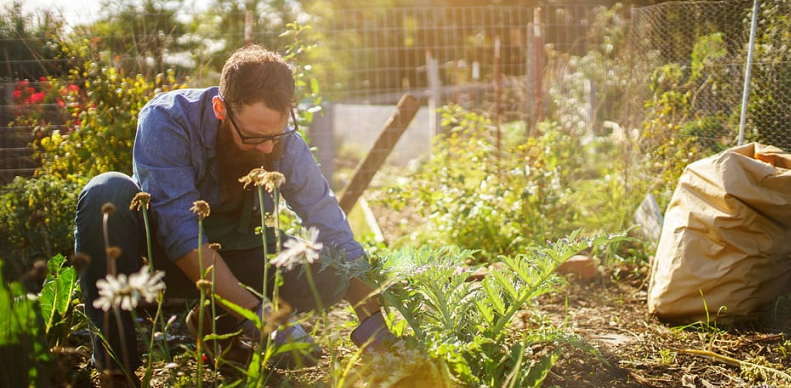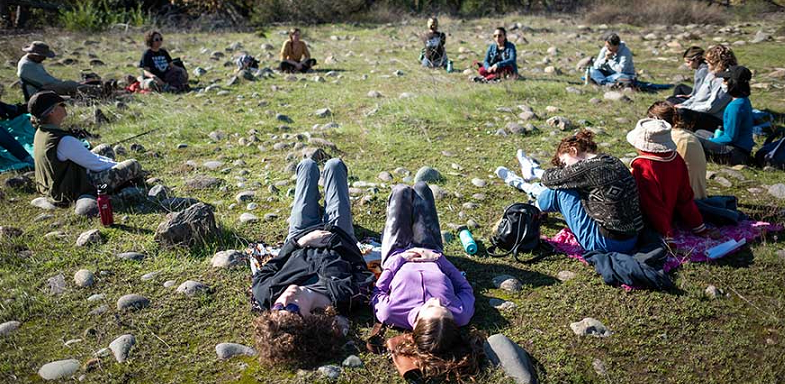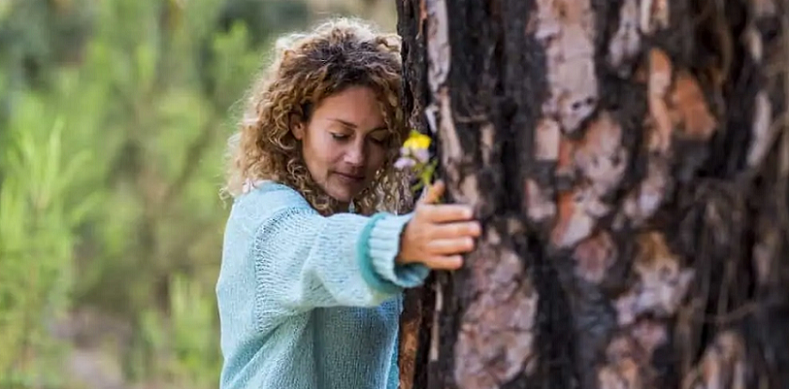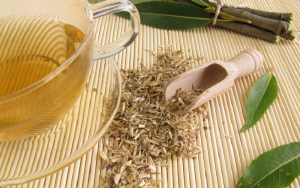
Ecotherapy, also known as nature therapy or green therapy, is the powerful practice of connecting with nature for healing and well-being. In recent years ecotherapy has been gaining recognition as a valuable tool for promoting mental and physical health. Here we delve into the science behind ecotherapy, the psychological and physiological benefits it offers, and various activities that can help you harness the healing power of nature.
Contents
Introduction to Ecotherapy
Ecotherapy, a holistic approach to healing and well-being, has been gaining traction in recent years as people seek natural alternatives to traditional therapies. By encouraging a deeper connection with the natural world, ecotherapy helps individuals find solace, peace, and rejuvenation.
Definition of Ecotherapy
Ecotherapy, also known as nature therapy or green therapy, is a practice that combines psychological and environmental principles to promote mental, emotional, and physical health. It is based on the idea that humans have an innate connection to the natural world, and spending time in nature can help improve well-being, reduce stress, and promote overall healing. Ecotherapy can include a wide range of activities, from outdoor adventures and gardening to mindfulness practices in natural settings.
Brief History of Ecotherapy
The concept of ecotherapy can be traced back to ancient civilizations, where the healing power of nature was recognized and utilized in various cultures. In recent decades, ecotherapy has evolved from a combination of environmental psychology, ecopsychology, and traditional therapeutic practices. The term “ecotherapy” was first coined by Howard Clinebell, a pastoral counselor, in his 1996 book, “Ecotherapy: Healing Ourselves, Healing the Earth.” Since then, the field has expanded, with numerous studies and research highlighting the numerous benefits of connecting with nature for mental and physical health [1].
Importance of Connecting with Nature
In our modern, technology-driven world, people are becoming increasingly disconnected from nature. This disconnection can lead to feelings of isolation, stress, and anxiety. By re-establishing our bond with the natural world through ecotherapy, we can restore balance and harmony in our lives.
Connecting with nature allows us to tap into its healing properties, promoting relaxation, stress reduction, and a greater sense of well-being. Additionally, fostering an appreciation for nature can lead to more sustainable and environmentally conscious lifestyles, benefiting both our personal health and the health of our planet.

The Science Behind Ecotherapy
As the popularity of ecotherapy continues to grow, numerous scientific studies have been conducted to understand its underlying mechanisms and validate its benefits.
Psychological Benefits
Ecotherapy has been found to provide a wide range of psychological benefits, including reduced stress and anxiety, improved mood and self-esteem, and enhanced cognitive function. These positive effects can be attributed to various factors, such as the calming influence of natural settings, increased exposure to sunlight, and engaging in physical activities outdoors [2].
Reduced Stress and Anxiety
Numerous studies have demonstrated that spending time in nature can significantly decrease stress levels and alleviate anxiety. Natural environments, with their soothing sights, sounds, and smells, can help promote relaxation and lower cortisol levels, a hormone associated with stress. Moreover, engaging in outdoor activities can help distract from daily worries and provide a sense of escape from the pressures of modern life.
Improved Mood and Self-Esteem
Exposure to natural settings has been shown to improve mood and enhance self-esteem. Green spaces can help promote a sense of calm and well-being, while physical activities in nature, such as hiking or gardening, can release endorphins, which are responsible for feelings of happiness and euphoria. Additionally, connecting with nature can provide a sense of accomplishment and competence, leading to increased self-esteem and self-confidence.
Enhanced Cognitive Function
Research has also indicated that spending time in nature can improve cognitive function, including attention, memory, and creativity. Natural environments can help restore attentional resources that are depleted by the constant demands of modern life, leading to improved focus and concentration. Furthermore, the beauty and novelty of natural settings can inspire creativity and problem-solving abilities, contributing to overall cognitive health.
Physiological Benefits
In addition to psychological benefits, ecotherapy can also have a positive impact on various physiological aspects of health, such as lower blood pressure and heart rate, a boosted immune system, and improved sleep quality [3].
Lower Blood Pressure and Heart Rate
Spending time in nature has been found to have a positive effect on cardiovascular health, leading to reduced blood pressure and heart rate. The calming influence of natural environments can help the body enter a state of relaxation, allowing the heart to work more efficiently and reducing the strain on the cardiovascular system.
Boosted Immune System
Research suggests that exposure to nature can help strengthen the immune system, providing protection against various illnesses and diseases. One possible explanation for this is the “biophilia hypothesis,” which posits that humans have an innate affinity for nature and that spending time in natural environments can enhance our immune response. Moreover, engaging in physical activities outdoors can help improve overall fitness and resistance to infections.
Improved Sleep Quality
Connecting with nature can also have a positive impact on sleep quality. Exposure to natural light during the day can help regulate the body’s internal clock, promoting a healthy sleep-wake cycle. Furthermore, engaging in outdoor activities can help increase physical tiredness, making it easier to fall asleep and stay asleep throughout the night. The calming influence of natural settings can also help reduce stress and anxiety, contributing to a more restful night’s sleep.

Types of Ecotherapy Activities
Ecotherapy is a versatile and diverse field, offering a wide range of activities to suit various interests and preferences.
Forest Bathing (Shinrin-Yoku)
Originating in Japan, forest bathing, or Shinrin-Yoku, is the practice of immersing oneself in a natural environment, particularly a forest, to absorb its healing properties. This form of ecotherapy encourages mindfulness, deep breathing, and a sensory connection with nature. Studies have shown that forest bathing can help reduce stress, boost mood, and improve immune function [4].
Gardening and Horticulture Therapy
Gardening is another popular form of ecotherapy that involves cultivating plants and tending to a garden. Horticulture therapy, a specialized form of gardening, is often used in therapeutic settings to help individuals develop skills, build self-esteem, and foster a sense of accomplishment. Gardening can provide a sense of purpose, promote relaxation, and offer a connection to the natural world.
Animal-Assisted Therapy
Animal-assisted therapy involves interacting with animals, such as dogs, horses, or even farm animals, as a form of ecotherapy. This type of therapy can help reduce stress, improve mood, and provide comfort and companionship. Animal-assisted therapy is often used in conjunction with other therapeutic practices and can be particularly beneficial for individuals dealing with anxiety, depression, or trauma [5].
Nature Meditation and Mindfulness
Meditation and mindfulness practices can be enhanced by incorporating natural settings into the experience. Nature meditation involves focusing on the sights, sounds, and sensations of the natural environment, promoting a deep sense of relaxation and mental clarity. Engaging in mindfulness practices in nature can help improve focus, self-awareness, and emotional regulation.
Adventure and Wilderness Therapy
Adventure and wilderness therapy involve participating in outdoor activities, such as hiking, rock climbing, or canoeing, as a means of personal growth and self-discovery. This form of ecotherapy can help build confidence, resilience, and problem-solving skills while fostering a connection with nature. Adventure and wilderness therapy are often used in conjunction with traditional therapeutic techniques to address mental health challenges and promote overall well-being.

How to Incorporate Ecotherapy into Daily Life
Incorporating ecotherapy into your daily routine can have a profound impact on your overall well-being and quality of life.
Making Time for Nature
One of the simplest ways to incorporate ecotherapy into your life is by making time for nature. This can involve taking regular walks in a nearby park, visiting a local nature reserve, or simply spending time in your backyard. Prioritizing time spent in nature can help you develop a consistent routine and foster a deeper connection with the natural world.
Engaging in Outdoor Activities
Outdoor activities can provide numerous physical and mental health benefits while offering an opportunity to connect with nature. Activities such as hiking, cycling, birdwatching, or gardening can all serve as effective ecotherapy practices. Choose activities that resonate with your interests and abilities, and aim to incorporate them into your weekly routine.
Creating Green Spaces at Home
Creating green spaces at home can provide you with a personal oasis to practice ecotherapy. This can involve planting a garden, setting up a small greenhouse, or creating an indoor sanctuary with houseplants and natural elements. By cultivating a green space at home, you can enjoy the benefits of ecotherapy without having to venture far from your doorstep.
Joining Ecotherapy Groups and Programs
Participating in ecotherapy groups and programs can provide you with a supportive community of like-minded individuals who share your passion for nature and well-being. These groups often organize various activities, such as guided nature walks, group gardening projects, or outdoor meditation sessions. Joining an ecotherapy group can help you stay accountable and committed to your practice while offering opportunities to learn from others and share experiences.
References
[1] The Nature Cure: Why some doctors are writing prescriptions for time outdoors
[2] Ecotherapy – A Forgotten Ecosystem Service
[3] Ecotherapy
[4] Bringing nature into treatment
[5] Ecotherapy






